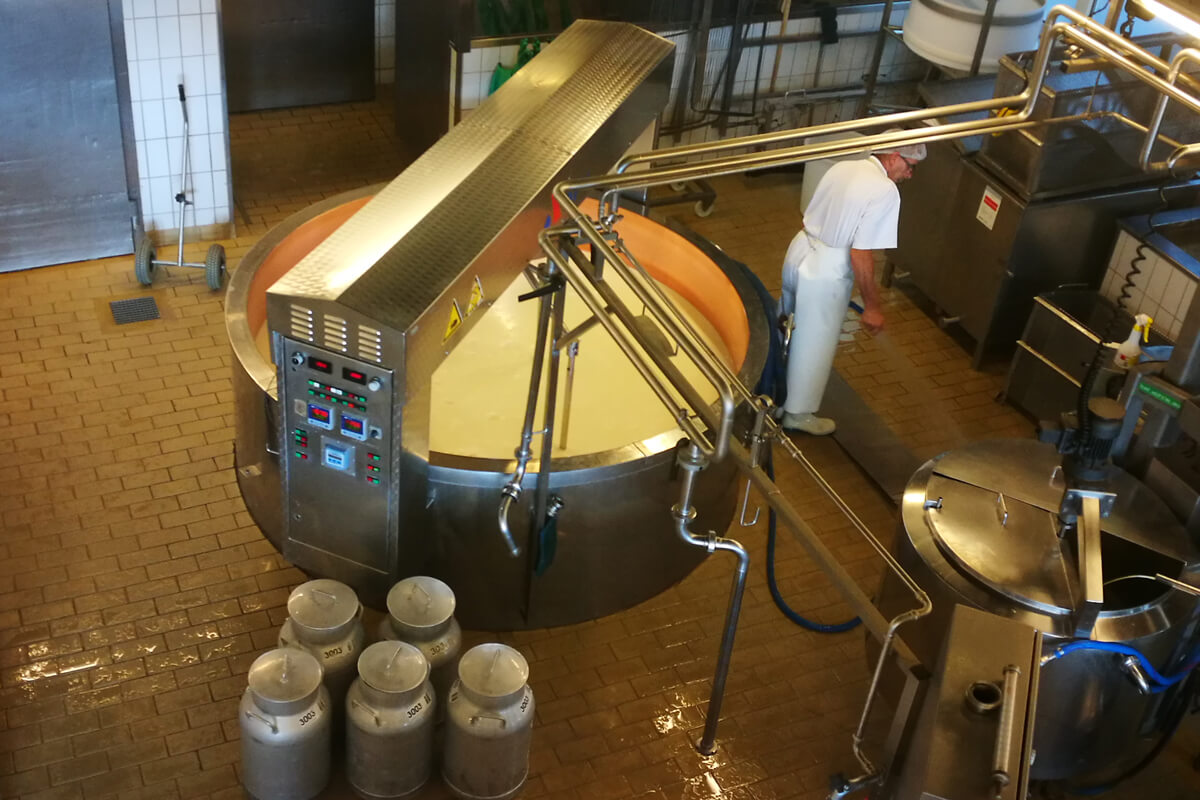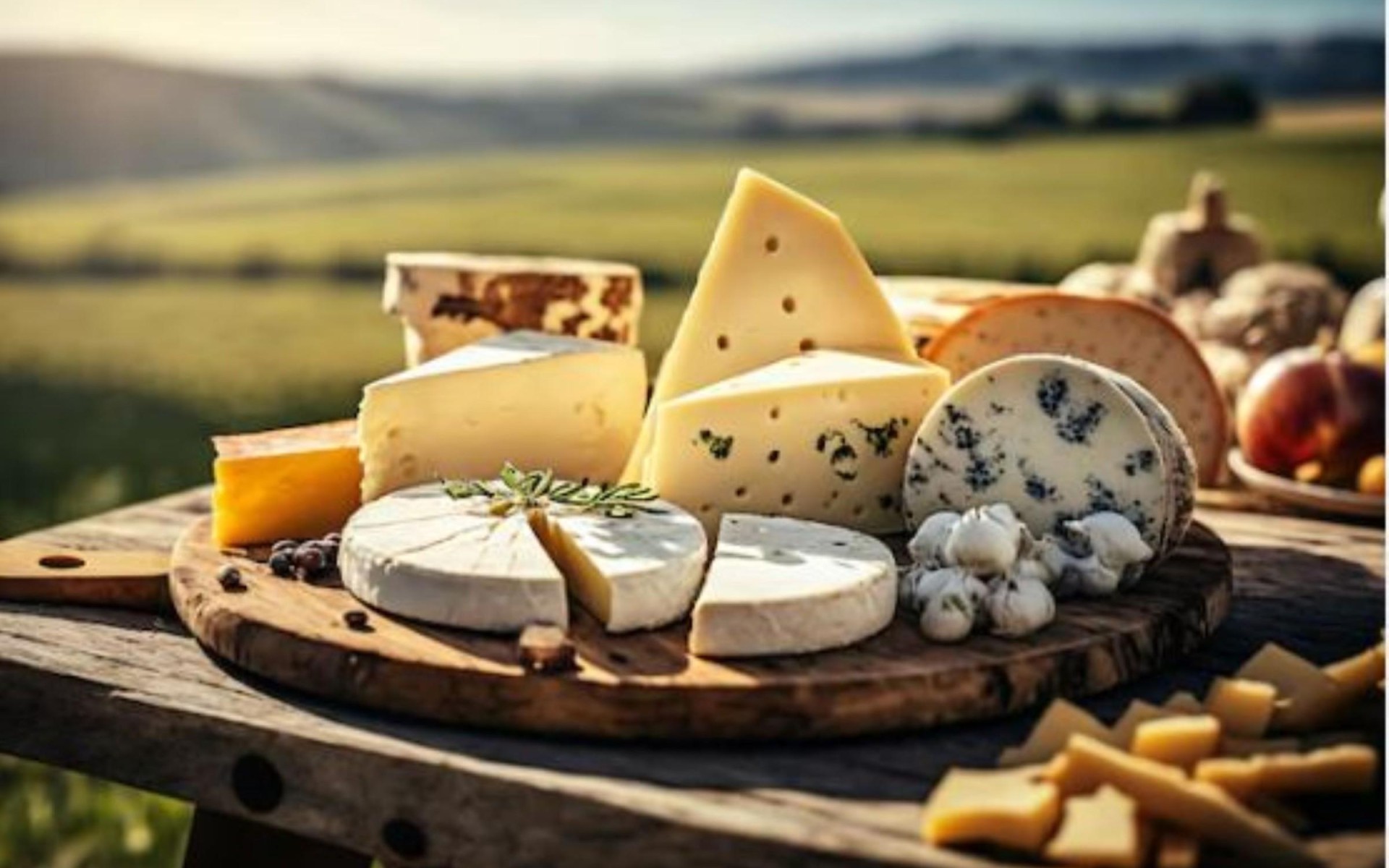Visit the Premier Cheese Shop Melbourne for Premium Selections
Visit the Premier Cheese Shop Melbourne for Premium Selections
Blog Article
Exploring the Art of Cheese Manufacturing: Techniques, Procedures, and Advancements in the Milk Industry
The expedition of cheese production incorporates a diverse selection of strategies and procedures that show both historic practices and contemporary technologies within the milk industry. By checking out the intricate art of fermentation, aging, and modern-day manufacturing methods, one gains understanding right into exactly how craftsmens and large producers alike adapt to advancing consumer choices and sustainability challenges. As we take into consideration the implications of these advancements, it becomes vital to question exactly how they will certainly form the future landscape of cheese and its function in our diets and cooking practices.
History of Cheese Making
Tracing its beginnings to ancient human beings, the background of cheese making exposes an abundant tapestry of cultural and technological evolution. Proof recommends that cheese production go back over 7,000 years, with archaeological searchings for from regions such as Mesopotamia and the Indus Valley showcasing early dairy practices. These cultures made use of milk from tamed pets, and with natural processes of fermentation and coagulation, they generated fundamental types of cheese.
As people proceeded, the art of cheese making ended up being a lot more improved. The old Egyptians and Greeks documented their approaches, which included a variety of milk resources and diverse strategies for aging and flavoring cheese. The Romans better advanced cheese production, exporting their expertise across Europe, which led to regional adaptations and one-of-a-kind ranges.
The Middle Ages witnessed the facility of monasteries as centers of cheese production, where monks established distinctive recipes that showed neighborhood preferences and offered resources. Throughout the centuries, cheese production has evolved, influenced by variables such as geography, climate, and cultural methods. This rich history not only highlights the ingenuity of very early cultures yet likewise lays the foundation for the diverse cheese selections appreciated today across the world.
Standard Cheese Production Methods
Traditional cheese manufacturing strategies encompass a selection of time-honored methods that have actually been passed down through generations. These methods, typically region-specific, show the special cultural heritage related to cheese-making. The procedure normally begins with sourcing high-quality milk, which can vary in kind depending on the preferred cheese.
Coagulation is accomplished through the enhancement of rennet and sometimes an acid, bring about the development of curds. The curds are after that reduced and gently mixed, permitting whey to separate. This first curdling stage is important, as it influences the appearance and wetness content of the final item.

Fermentation and Aging Processes
Fermentation and aging processes are indispensable to the development of cheese, taking place after the first coagulation and pushing phases. During fermentation, details bacterial societies are presented to the curds, promoting the conversion of lactose into lactic acid. This level of acidity not only aids in curd conservation yet also adds to the flavor profile and texture of the end product.
As the cheese ages, biochemical reactions continue to take location, influencing its preference, aroma, and structure. Different cheeses need differing aging periods, which can vary from a couple of weeks to a number of years, leading to unique characteristics.
Moreover, the presence of mold and mildews or yeasts on the cheese surface can better boost flavor complexity. For example, blue cheeses count on certain mold societies to create their signature preference accounts. Generally, both fermentation and aging are critical in specifying the individuality of cheeses, enabling artisans to produce a varied array of products that accommodate a vast array of tastes.
Modern Innovations in Dairy Manufacturing
Developments in dairy production have actually reinvented the cheese-making process, enhancing performance and item high quality. Technical advancements, such as automated milking systems and accuracy fermentation methods, have structured procedures and enhanced uniformity in raw milk quality. These systems minimize labor prices and improve pet welfare by permitting more comfy and reliable milking methods.
Furthermore, the consolidation of information analytics and IoT (Web of Points) tools has actually enabled dairy producers to keep track of various specifications, such as temperature and humidity, in real-time. cheese makers melbourne. This capacity makes certain optimal problems throughout the cheese-making procedure, resulting in a better final product
Furthermore, developments in pasteurization techniques, including high-temperature short-time (HTST) pasteurization, have not only enhanced food security however also maintained the delicate flavors and nutrients inherent in milk.
Lasting practices are also getting grip, with innovations in waste administration and renewable resource application. Lots of manufacturers are now utilizing biogas from milk waste, advertising ecological stewardship while all at once lowering operational prices.
These modern-day innovations collectively add to a much more efficient, sustainable, and high-quality cheese manufacturing process, establishing new standards in the milk market.
Future Trends in Cheese Industry
As the cheese market proceeds to advance, arising trends are reshaping production, usage, and advertising and marketing methods. One substantial pattern is the expanding need for over here artisanal and specialty cheeses, driven by consumers looking for unique tastes and top quality ingredients. This shift is motivating producers to take on conventional methods while including modern innovation for boosted quality assurance.
Sustainability continues to be at the forefront of customer preferences, triggering suppliers to check out environmentally friendly methods, such as minimizing water use, maximizing power usage, and making use of naturally degradable product packaging products. Additionally, advancements in plant-based cheese alternatives are increasing market chances, providing to the raising variety of vegan and lactose-intolerant customers.
Moreover, digital advertising and shopping are transforming exactly how cheese is marketed and offered, allowing manufacturers to attach directly with consumers and customize their offerings to particular demographics. Membership solutions and on the internet platforms are ending up being prominent channels for cheese circulation, improving access and ease.
Lastly, health-conscious fads are affecting cheese formulas, with manufacturers establishing lower-fat, lower-sodium, and nutrient-enriched alternatives to fulfill customer needs. As these fads remain to unfold, the cheese industry is likely to witness a dynamic transformation that lines up with contemporary consumer values and preferences.

Final Thought
The expedition of cheese production reveals a complex interplay of classic techniques and contemporary Check This Out innovations. Standard approaches, rooted in historical methods, remain to affect modern manufacturing while adjusting to evolving customer choices. Fermentation and aging processes stay critical to taste growth, while developments in technology enhance effectiveness and sustainability. As the milk market accepts health-conscious fads and environment-friendly practices, check my source the future of cheese production promises continued development and innovation, ensuring its enduring value in culinary culture.
Report this page